17 Weight Loss Tips for New Parents
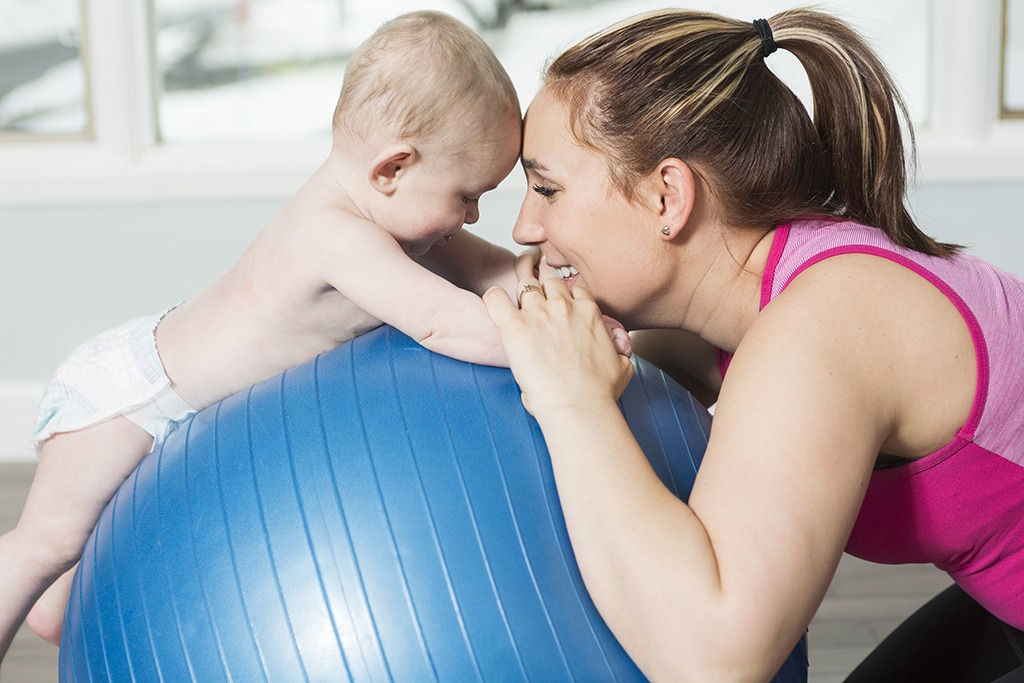
What's one of the first things to take a backseat when you're a new parent? Yep, you guessed it: A consistent, healthy diet.
When you have less free time and a lack of sleep (which makes you feel more hungry), it's not surprising that losing the weight you've put on during pregnancy (or sympathy weight for dads, perhaps!) can be seriously difficult to shed.
While you may not have the time or mental energy for daily cardio or weight training sessions or have the surplus disposable income to splurge on the best organic produce, there are still plenty of things you can realistically do to boost weight loss. No military drills or juice cleansing required! Eat This, Not That! reached out to two of the most well-known nutritionists and asked them to share what they consider to be the easiest and most effective tweaks to integrate into the day-to-day life—no matter how overtaxed you are. And to blast even more fat, keep going with our essential 47 Best New Weight Loss Tips!
Snack More

Eating small meals throughout the day keeps metabolism burning efficiently and prevents excessive hunger. "Whether it's intentional (in an attempt to lose weight "faster,") or unintentional (because parents are so preoccupied taking care of their new child), meals are often skipped in new parenthood. Despite taking in fewer calories in the moment, this actually hinders weight loss efforts, and may even lead to weight gain over time," explains Zuckerbrot. Why? When the body is deprived of food for many hours between meals, it starts conserving fuel and burning fewer calories to protect itself from starving. Metabolism slows down, which inhibits weight loss despite the temporarily reduced caloric intake. Skipping meals also causes blood sugar levels to begin to drop. Low blood sugar can produce hunger pangs, which can trigger bingeing and food cravings. " Blood sugar levels begin to drop within two hours of eating, so aim to eat four small meals a day. Breastfeeding moms especially need to be sure they are eating regularly and adequately, as the body requires energy to create the breast milk." Make sure you're choosing healthy snacks, too—not just anything. Which reminds us, have you seen our exclusive report on Every Little Debbie Snack and Treat—Ranked!?
Stop Eating Before Bed

Late night eating is a guilty pleasure for many, but while your mind might be screaming for a midnight serving of ice cream, the body actually loves a fast during the night. "I recommend having your last bite of food three hours before bed," says nutritionist and founder of NAO Nutrition, Nikki Ostrower. "Eating right before bed doesn't give your body enough time to digest especially because our body prefers to be upright during digestion. It can also cause indigestion and inflammation in the gut, all of which contribute to slowing down your metabolism."
Have A Morning Detox

No, we're not talking about some extreme juice cleanse, but rather a detox elixir to wake your body up in the morning and set you up for a healthy day. "Right when you wake up, have one tablespoon of Braggs Apple Cider Vinegar with 8-ounces of water. This ritual is great for weight loss and liver detoxifier (side note: this means it can help mitigate a hangover!)," says Ostrower. "It also increases the Hydrochloric Acid (HCL), the good acid your belly makes which helps digest fats, carbs and proteins and prepares you for a day of eating. Great for weight loss, cravings, detoxification and disease prevention." Basically, this mix is like putting the key in the ignition and starting digestion on the right foot. For more great items to detox with, check out these 25 Best Foods for Instant Detox!
Mind Your Plate
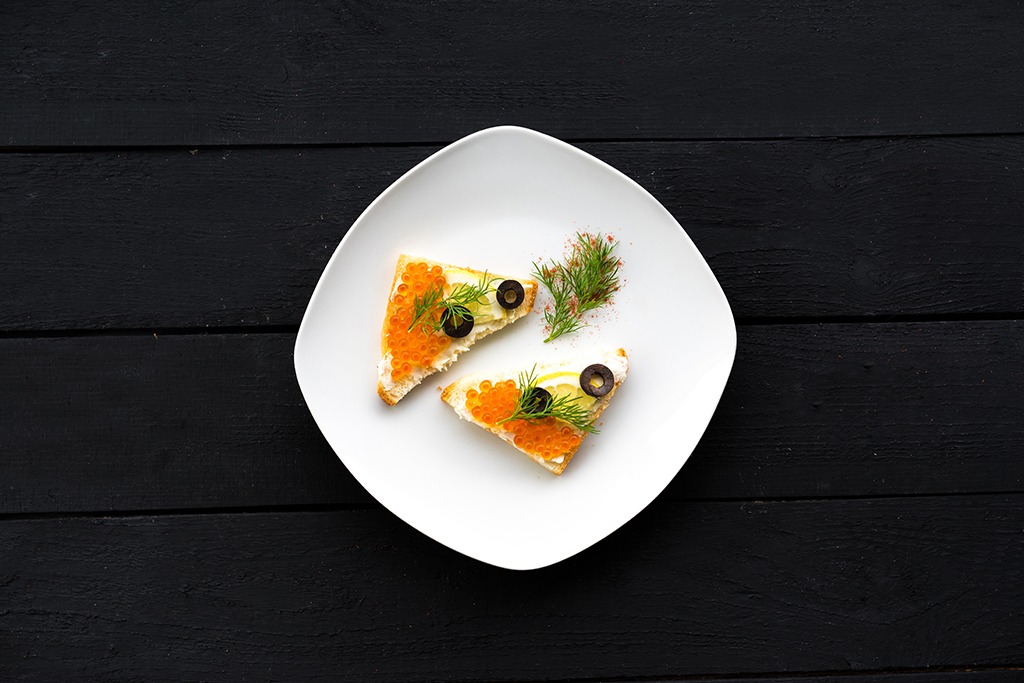
It's not only what's on your plate that matters. Research has shown that your actual plate – the size and even the color – can influence how much you eat. Place your food on a salad size plate. According to the Cornell University Food and Brand Lab when people used a 10-inch plate they ate 22 percent less food than those who used a 12-inch plate. Similarly, those who ate pasta on a white plate ate 22 percent more than those who ate the same pasta on a red plate.
Eat Less 'Healthy' Food
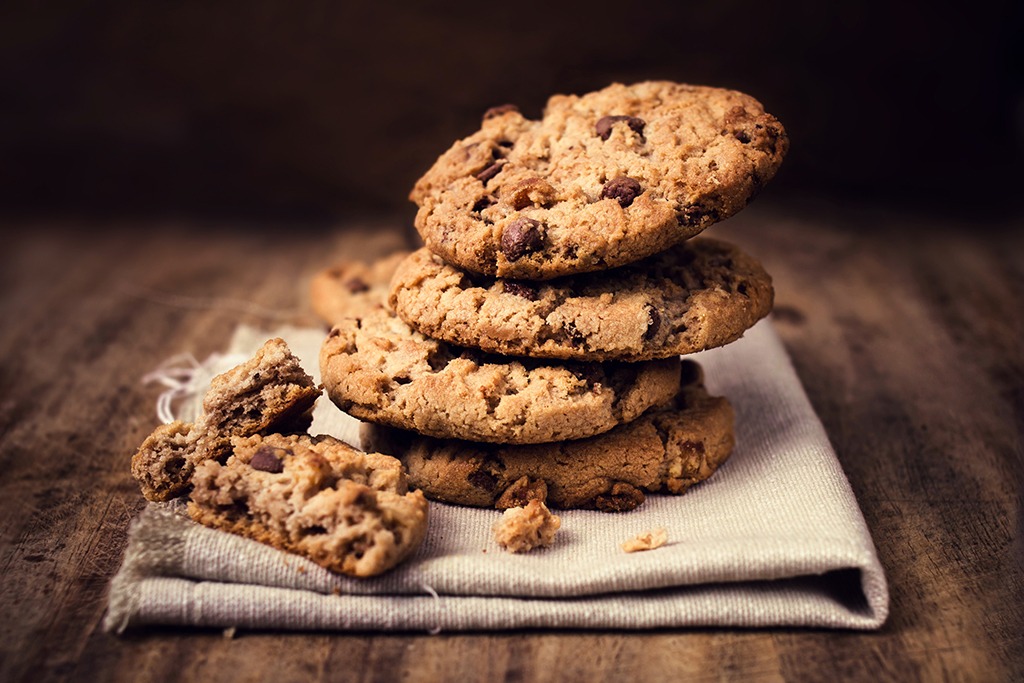
It may sound nutty, but it's all too common for people to assume that healthy foods aren't as filling as their unhealthy counterpart and therefore they tend to overeat. According to the Journal of the Association for Consumer Research when test subjects were given a "healthy cookie" they reported being hungrier than those who were given a regular cookie and ultimately ended up eating more even though the cookie, in both cases, was the same. This research's results were replicated with fat-free, high-fiber and other "healthy" jargon.
Focus On Fiber
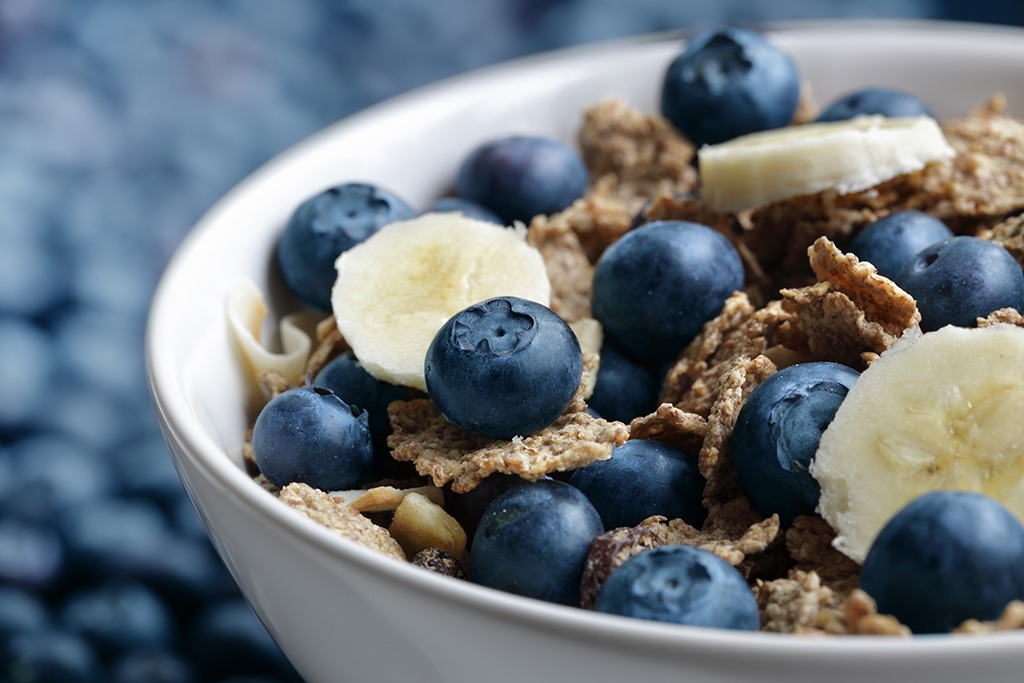
Adding high fiber foods like fruits and vegetables, whole grains, bran and legumes to your diet can aid in weight loss for new parents. "Fiber is a zero-calorie, indigestible part of a carbohydrate that adds bulk to food. When eaten, fiber swells in the stomach, so dieters feel fuller, on less food, and are less tempted to mindlessly snack," explains Zuckerbrot. Fiber also naturally boosts metabolism, which also helps in weight loss.
DON'T MISS: 30 Best High-Fiber Foods
Get Enough Sleep

As new parents, the notion of getting enough sleep is almost laughable, but it can have an impact on weight loss efforts as the amount and quality of your sleep affects the hormones that control feelings of hunger and fullness. "Ghrelin stimulates appetite, causing you to feel hungry, and leptin is responsible for sending a signal to your brain that you are full," explains Zuckerbrot. "When you're well rested these hormones work in balance, however, when you are sleep deprived, leptin levels plummet and ghrelin levels rise, setting the stage for overeating." Sleep deprivation leads to more than just slowed thinking and sluggishness; it exaggerates feelings of hunger during day, even if you've had enough to eat.
Don't Skip Breakfast
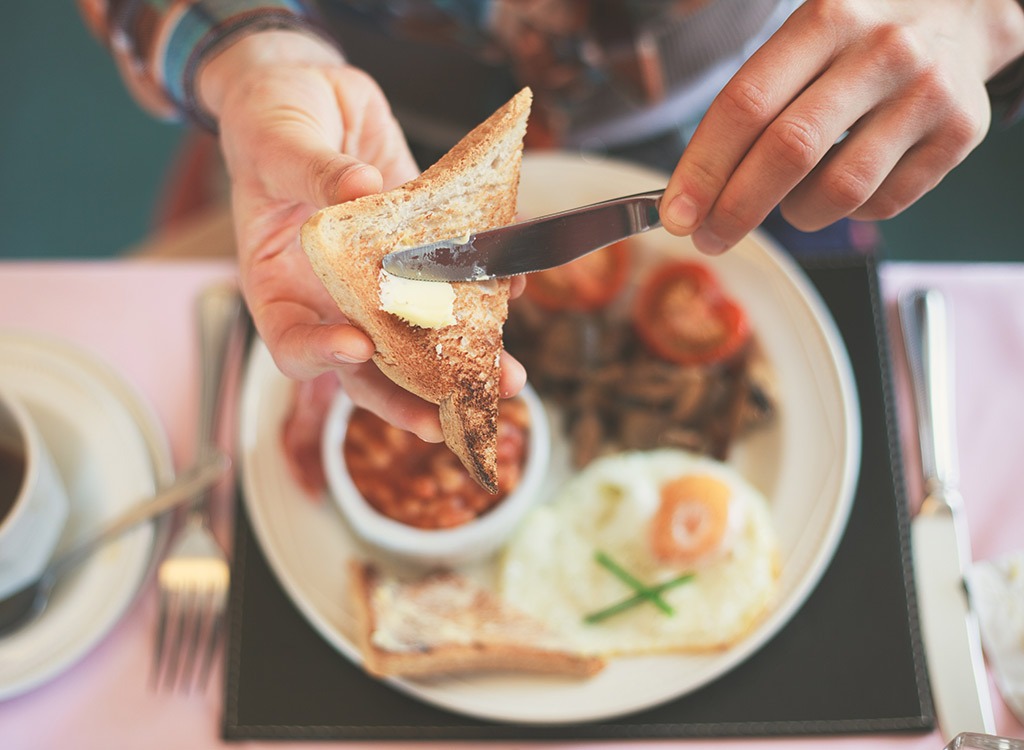
We've all heard it, and for good reason. Breakfast is the most important meal of the day for kids AND parents alike. New parents often get so preoccupied making sure their little ones are fed breakfast that their own morning meal gets sidelined. Skipping breakfast slows down metabolism and leads to weight gain. Zuckerbrot highlights studies that show that breakfast eaters burn calories more efficiently throughout the day and are more likely to be thinner than non-breakfast eaters. The celebrity nutritionist recommends starting your day with a breakfast that combines fiber and protein, like Greek yogurt with a high fiber cereal, hard boiled eggs with high fiber crackers or toast, or a high fiber/high protein bar. "The combination of fiber and protein keeps you feeling full, for the longest period of time, on the fewest calories and will keep blood sugar steady so energy levels are even and temptations to graze on refined carbohydrates later in the day are minimized." We also strongly recommend these 50 Best Overnight Oats Recipes!
Be Mindful
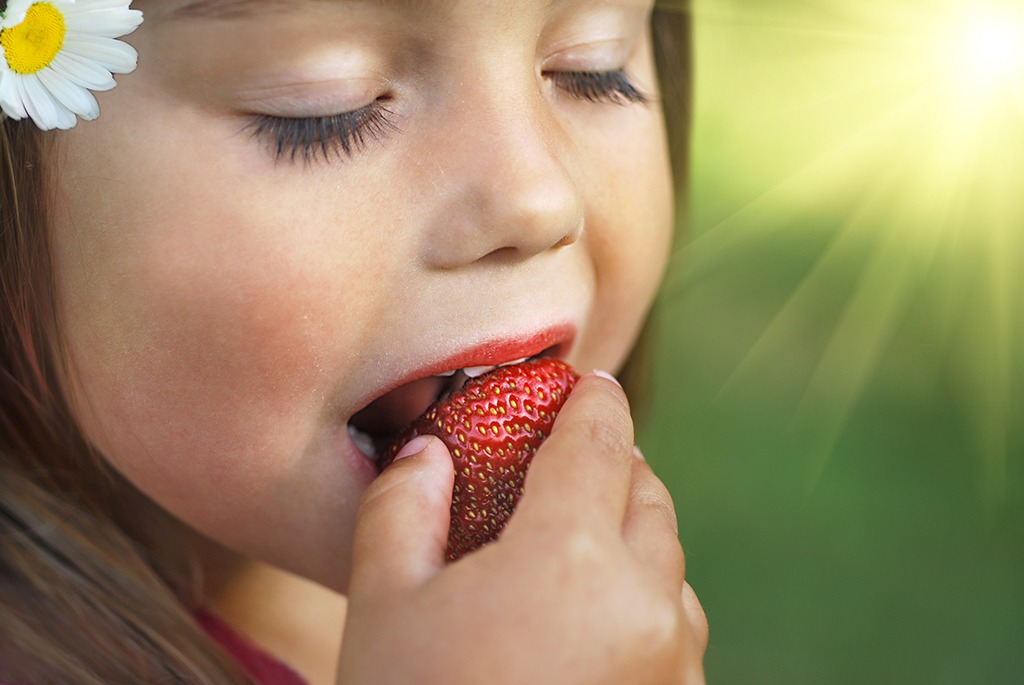
Many people overeat because they're eating too quickly or distracted during their meals (i.e. eating while doing another activity). It takes about 20 minutes for your brain to process that you are full so eating slowly is imperative for weight loss. "Chew your food 20 times," recommends Ostrower. "This not only pre-digests the food, it also helps you to slow down, therefore you won't eat as much." The nutritionist also recommends being aware of what you keep in your home. "Avoid keeping triggering processed food in the house. If it's not there, you won't eat it." In tandem with this bear in mind smart swaps. "I often recommend that parents, for example, replace that evening glass of wine with Kombucha. Kombucha stimulates digestion and has tons of feel good B vitamins."
Squeeze in Fitness
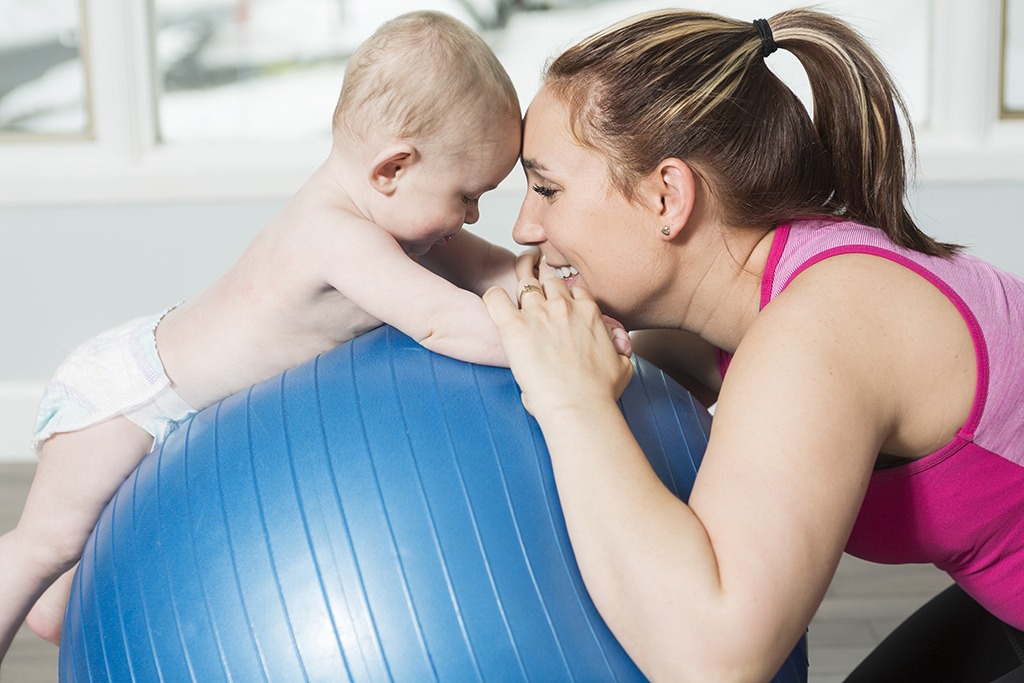
While you may not have time to get to a gym or even have the time for an at-home workout, you can still work fitness seamlessly into your daily schedule. Get a running stroller and use it when checking errands off your to-do list. "We bought the Thule," says Ostrower. "It's light, has a great compact design, it's easy to maneuver, gives a smooth ride and it's super comfy for the nugget." Another option? Do squats while your baby is in an Ergo carrier. No matter what kind of fitness you work into your schedule, however, be realistic with your goals so you don't find yourself giving up quickly.
Stay Off The Scale
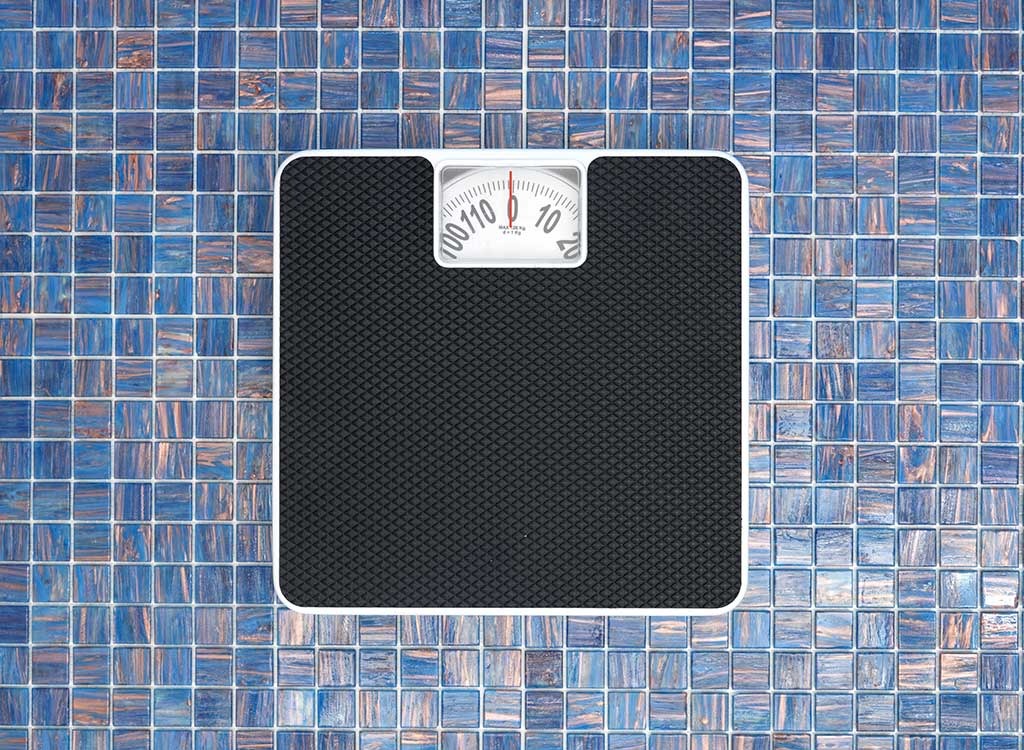
After giving birth there are many hormonal changes in the body that can make weight and emotions fluctuate. For some, getting on the scale during this time is essentially asking for a panic attack. Zuckerbrot warns that getting worked up and stressed out about the weight can be counterproductive for the weight loss and prevent you from shedding pounds. "Quantifying weight gain/loss/progress (ie getting on the scale) can be very alarming. Instead of the scale, use clothing as an indicator of progress. Understand that the weight gained during pregnancy was not put on overnight, so you cannot expect to shed it overnight. Stay focused and calm, and the weight loss will follow."
Keep Your Stress In Check

We know, we know this is a lot easier said than done when your nugget is yelling at all hours of the night and you have to get up for work at 6 AM, but bear in mind that a study published in Social Science and Medicine discovered that men gain more weight after childbirth than women. The study found that the reason men were gaining weight was that their lifestyle was so drastically different after giving birth (i.e. less drinking, smoking, and exercising). The high stress levels were possibly contributory as well. "New parents can try to incorporate some stress reduction activities like five minutes of meditation daily and, in whatever way possible, returning to enjoyable activities such as dining out, socializing with friends – this may actually help with weight loss efforts!" says Zuckerbrot.
Be A Positive Role Model

A study published in the journal Obesity stated that the children of overweight and obese adults were more likely to gain weight in the first 24 months of birth and also were less likely to be satiated with meals. Children with obese parents are far more likely to be obese themselves. "If your own health isn't enough of a concern, use your child's health as your motivator," says Zuckerbrot. "The foods you choose to eat in front of your child will very likely shape their bodies and perception for life. Get educated on proper nutrition with a registered dietitian and set an environment of health in the home."
Leave The Kid Food For The Kids

Many parents make the mistake of tasting and picking while preparing foods for their toddler or little one. "When preparing foods for your child, try to not taste and serve yourself the foods that are for them," cautions Zuckerbrot. "Foods are not free just because they are small! Be sure to save all foods as leftovers." Don't miss these 18 Ways to Make the Most of Leftovers while you're at it.
Drink Water
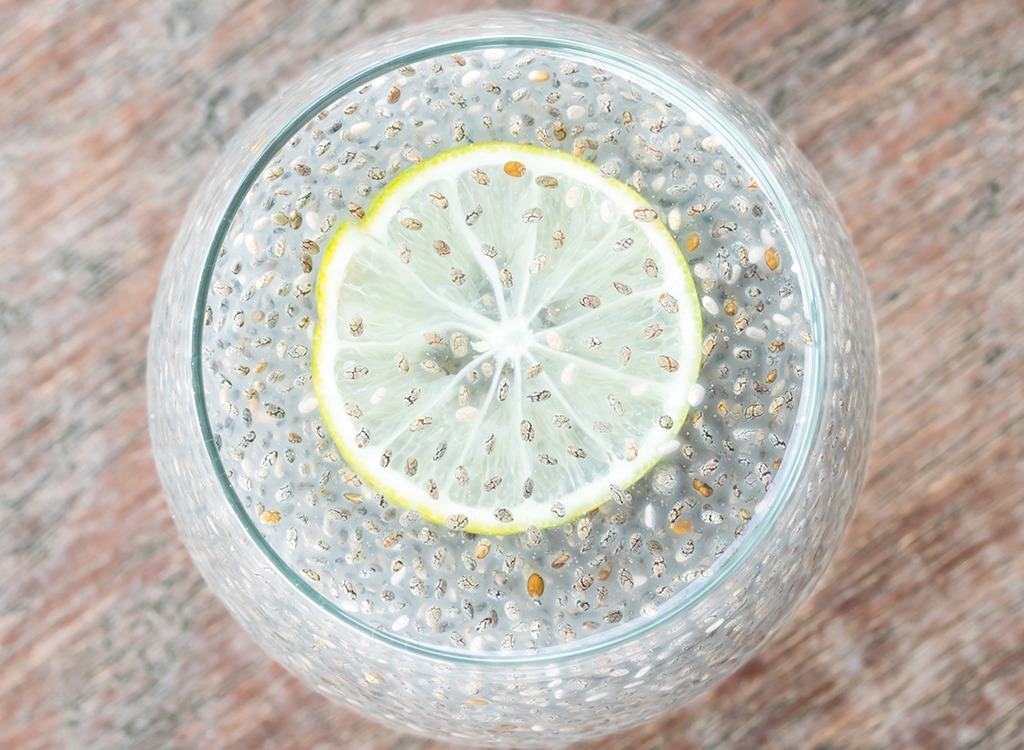
New, busy parents may not be getting enough water in their diet, which can hinder weight loss efforts. Water plays a key role in nearly every bodily function and it fills you up so you tend to eat less, thus helping with weight loss. Zuckerbrot recommends eight to 12 cups of water a day. "Being dehydrated can also mimic hunger. Many times, our hunger is thirst in disguise, and you can experience symptoms such as feeling weak, cranky and tired. To get rid of these symptoms we then grab a candy bar when all we really needed was a drink of zero-calorie water." Also note that getting enough water is especially important for breastfeeding mothers, as breast milk amount is directly linked to the amount of water you consume. If you're not a fan of regular water make flavored water by infusing fruits. If opting for store bought flavored waters, however, make sure to avoid ones with added sugars, preservatives, and chemicals.
Nurse Your Baby

Not only does breastfeeding offer significant health benefits for mothers, it can be a huge weight loss aid. "Breastfeeding secretes about 400-700 calories per day (according to the American Pregnancy Association) which can help in losing the weight put on during pregnancy," says Tanya Zuckerbrot MS, RD, and founder of F-Factor Diet. The National Institutes of Health reviewed more than 9,000 study abstracts and found that women who either didn't breastfeed or stopped breastfeeding early on had an increased risk of postpartum depression, which can make post-pregnancy weight loss difficult. Zuckerbrot adds that research has also shown that breastfeeding triggers the release of oxytocin, a hormone associated with relaxation, and when asked, many mothers reported that nursing relaxed them. Bonus: Breastfeeding has been linked to a decreased risk of breast and ovarian cancer and may play a role in lowering osteoporosis risk.
Make A Plan

Bringing a baby home changes "normal" daily routines to an almost unrecognizable state for new parents. In order to adjust and regain order in your life, start with getting your eating on track. Take time to plan what and when you are going to eat. Zuckerbrot suggests writing down an outline each morning or at the beginning of the week. "With a plan, you are less likely to skip meals and/or snack on refined carbohydrates and other irresponsible foods. If a person's blood sugar gets low (which happens when they skip meals) the body goes into an emergency state and craves sugar. This leads to decreased inhibitions when it comes to food choices." If meal prepping for an entire week overwhelms you, start with breakfast with Your Meal Prep Guide to a Quick, Healthy Breakfast!